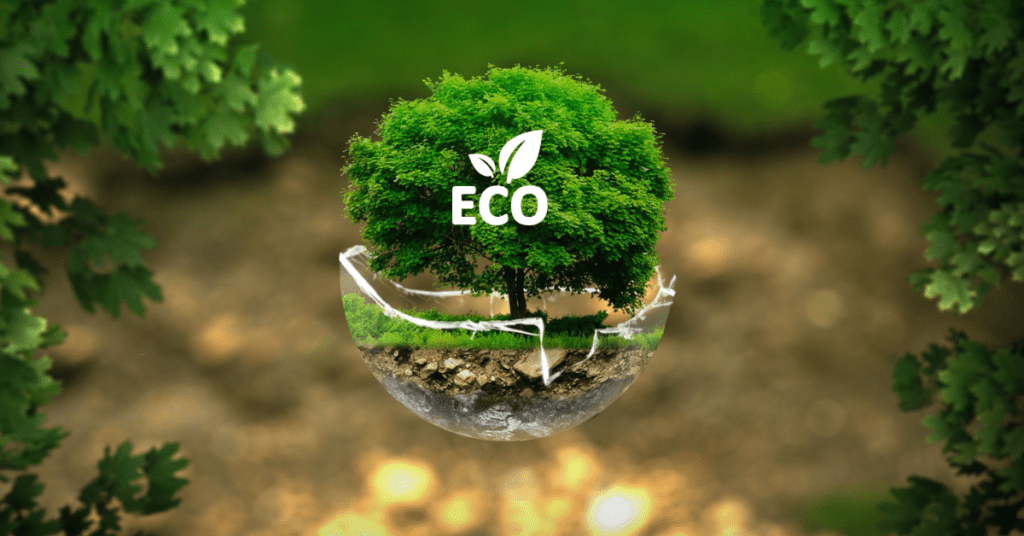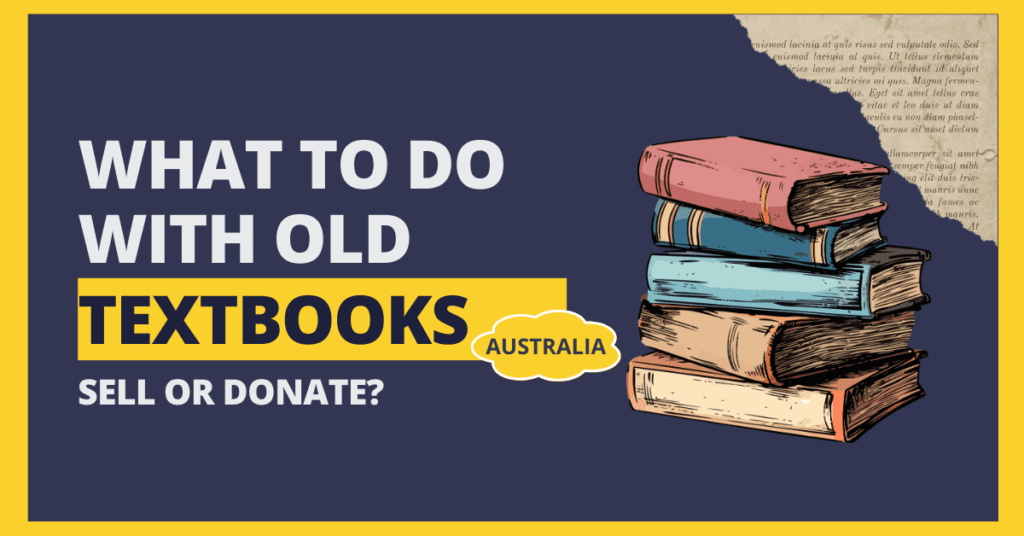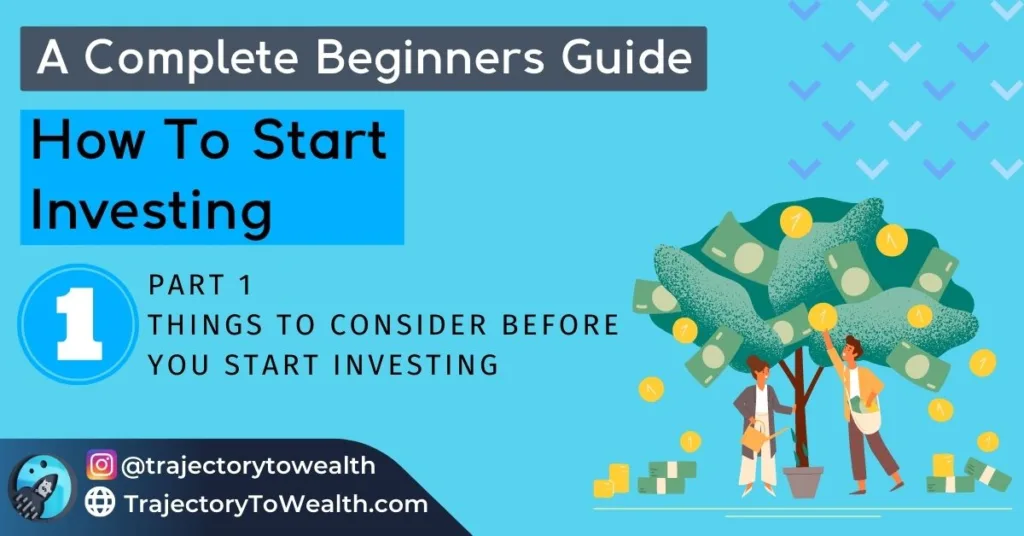Got a stack of old textbooks collecting dust? Let’s explore how you can turn those pages into profit—or tap into your philanthropic side and make a world of difference.
If you’ve accumulated a mini-library of old textbooks and now you’re scratching your head looking at a mountain of old textbooks on your shelf, this post is for you.
So, what to do with old textbooks in Australia?
Whether you’re a college student looking to make some extra cash, or someone who’s keen on literacy and wants to make a positive change, there’s a multitude of ways to give your old books a second life. Let’s explore!
Cash in or Make a Difference: The Good and the Bad

First off, you might be thinking that selling your old books is your best bet. And that’s a good idea—especially in terms of pricing. Platforms like Facebook Marketplace and other online marketplaces can connect you to a potential buyer in no time. Plus, there are even college bookstores offering a buyback program.
But let’s not forget about the donation route. Donating your old textbooks is a great way to foster a love for reading and contribute to Australian literacy. The Australian Literacy and Numeracy Foundation, for example, would be more than happy to take books in good condition.
But before we jump into more details, let’s lay down a general rule: texts should be in excellent condition to either sell or donate.
A Good Use for Books in Good Condition
Now, if you’ve examined your old book collection and decided it’s in good condition, there are several paths you can take.
Op shops, street libraries, and local schools often welcome donations of pre-loved books. Or if you’ve got an old hardcover or a rare book gathering dust, why not consider an auction house?
Your local library is also an option. Most local libraries even offer a free collection service for large donations. With COVID-19 restrictions easing in many areas, opened stores are happy to receive your old textbooks. And remember, these are not just donations; they are accessible educational material that can shape the future.
What About Those In Not-So-Great Shape?
If your textbooks are in poor condition, all is not lost.
An easy way to recycle them is through your local recycling program. Most local councils have recycling bins specifically designed for paper products. However, please note that some medical supplies and medical textbook donations are subject to specific rules, like medical waste disposal regulations.
Going Beyond Local: Reach the Underserved Areas
If you’re looking to make an even greater impact, consider organizations like Give a Textbooks Missions or the Asia Foundation. These organizations aim to get your old textbooks, especially university textbooks, to underserved areas. It’s not just local community service; it’s a global mission!
Tech-Savvy Methods: Social Media and Online Platforms

You’re already scrolling through your feed, so why not make it productive? Leveraging social media platforms, especially Facebook Marketplace and Facebook groups geared towards book lovers and college students, can amplify your reach. Think of it as an online platform that serves as your personal auction house, connecting you directly with potential buyers or avid readers.
The Allure of Secondhand Engineering and University Textbooks

Let’s get real for a second—engineering textbooks can cost an arm and a leg. If you’re holding onto engineering or specialized university textbooks, you’re sitting on a goldmine. Why? Because future students in these fields are often on the hunt for affordable options. Brand-new engineering textbooks can be prohibitively expensive, making the secondhand market incredibly attractive to those just starting their academic journey.
So, if you’re looking to sell, here’s your angle: emphasize the value these books offer. They’re not just pages filled with equations and theories; they’re gateways to academic success, available at a fraction of the cost of new books. But—and this is crucial—be transparent about the condition of the books. If there’s some highlighting or a dog-eared page, make it known. Your honesty will not only build trust but also help future students make an informed decision.
In a nutshell, your old textbooks could be the very resources future engineering or university students are scouring the internet for. So, when you list them, highlight their value and affordability. Your transparency and the attractiveness of a lower price point will make your old textbooks irresistible to the next wave of students.
Crafting the Perfect Post
When you’re ready to part ways with your old textbooks, don’t just slap a price tag on them and call it a day. Create a mini-story around each book. Did that thermodynamics textbook help you ace your finals? Did you discover a mind-blowing concept in that marketing book? Share these nuggets of wisdom in your post.
Use compelling terms and questions to invite engagement. Phrases like “Looking for affordable post-secondary study material?” or “Got further questions about this marketing textbook?” not only catch the eye but also open the door for conversation. The more engagement your post gets, the higher it appears in the feed, increasing your chances of making a sale.
So, the next time you’re scrolling through your feed, remember: those old textbooks gathering dust on your shelf could be someone else’s treasure. Why not use your online platform to give them a new home? After all, one person’s trash is another person’s treasure, especially when it comes to educational material.
Bonus tip:
Local community Facebook groups often include various interests—from animal adoption to furniture swaps. Use niche terms to stand out and capture attention. After all, you never know when someone in a ‘Furniture Fanatics’ group might be in the market for an old book of yours!
The Green and Mindful Angle

If you’re someone who wears their environmental awareness like a badge of honor, donating your old textbooks isn’t just a kind gesture; it’s an eco-friendly move that helps conserve natural resources. Think about it—each book you donate is one less that needs to be produced, saving trees and reducing waste.
And let’s not forget the mental health benefits. Ever thought about the calming effect a good children’s book or a visually stunning coffee table book can have? Mental health facilities often welcome such donations, offering patients a mental escape or a moment of peace.
The Many Avenues: From Salvation Army to Flea Markets
Whether you’re looking to make a quick buck or give back to the community, the options are endless. You can donate to established organizations like the Salvation Army, explore the bustling world of flea markets, or even support local independent bookstores that accept pre-loved books. The point is, there’s no shortage of best ways to handle your old textbooks in Australia.
Make Room for New Books and Elevate Your Mental Health
Clutter can be a mental drain. Those old textbooks aren’t just taking up physical space; they’re occupying mental real estate too. By selling, donating, or recycling them, you’re doing more than just making room for new books. You’re creating a more organized, peaceful environment that positively impacts your mental well-being. So, what’s the hold-up? Your old textbooks are ready for their next chapter, and so are you!
Wrap-Up: Choose Your Path Wisely
Now that you’ve got the low-down on what to do with old text books in Australia, the choice is yours. If you’ve got any further questions or if this post has raised your economic status (even if it’s just a little), feel free to share this with avid readers in your network.
Remember, the condition of the books will influence your options. If they’re unwanted books, a local bookstore or a book swap could be your best bet. But in the end, whether you’re looking to sell or donate, you’re making a positive impact, one book at a time.
So, what will it be? Selling for some extra pocket money or donating to foster a love for literacy? Either way, you’re turning old textbooks into treasure. And that, my friend, is a financial and moral win-win!
From Old Textbooks to Financial Literacy: A Seamless Transition
So, you’ve decided to declutter and make room for new books. Fantastic! But what about making room for financial wisdom? If you’re looking to elevate your financial literacy after parting ways with your old textbooks, don’t miss this curated list of the Top Finance Books You Must Read. Trust me, these game-changing reads are the perfect next chapter in your journey to financial freedom.
Discover the top finance books to read and improve your financial literacy. Our must-read picks cover personal finance, investing, and more. Start reading today!
FAQs: Your Burning Questions Answered
Australia is rich with options for donating old textbooks. Local charities like the Australian Literacy and Numeracy Foundation are always in need of educational materials. Schools and street libraries are also excellent choices. These community-run bookshelves are becoming increasingly popular across Australia, providing accessible educational material to everyone.
Absolutely, yes! The secondhand market for textbooks, particularly for university and post-secondary courses, is thriving. Online platforms like Facebook Marketplace and Gumtree are bustling with potential buyers looking for affordable study materials.
If your textbooks are beyond saving, recycling is a responsible option. Most local councils have recycling programs that accept paper products, including books. Some even offer specialized services for large-scale book recycling, so it's worth checking with your local council for specific guidelines.
Yes, many college bookstores offer buyback programs where you can sell your gently used textbooks. The amount you'll receive usually depends on the book's condition and demand. It's a good idea to compare offers from different bookstores to get the best deal.
In Australia, donations to registered charities are often tax-deductible. If you donate your textbooks to a qualified organization, make sure to get a receipt for your donation, which you can use when filing your taxes.
The condition of your textbooks plays a significant role in their resale or donation value. Books in good condition, with no missing pages or excessive markings, are more likely to find a new home. Some organizations and platforms have guidelines for assessing book conditions, so it's worth checking those out.
Yes, many organizations accept annotated textbooks as long as the annotations do not obscure the text. However, annotated books may fetch a lower resale value if you're looking to sell them.






